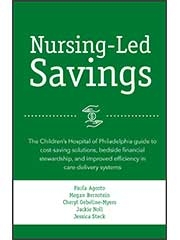Children’s Doctor News and Updates: Winter 2020
Published on
Children's DoctorPublished on
Children's Doctor Stephen Grupp, MD, PhD, and Beverly Davidson, PhD
Two CHOP experts in gene therapy have been elected to the prestigious National Academy of Medicine: Beverly Davidson, PhD, director of the Raymond G. Perelman Center for Cellular and Molecular Therapeutics, and Stephan Grupp, MD, PhD, Director of the Cancer Immunotherapy Program.
Stephen Grupp, MD, PhD, and Beverly Davidson, PhD
Two CHOP experts in gene therapy have been elected to the prestigious National Academy of Medicine: Beverly Davidson, PhD, director of the Raymond G. Perelman Center for Cellular and Molecular Therapeutics, and Stephan Grupp, MD, PhD, Director of the Cancer Immunotherapy Program.
Davidson was recognized for being on the forefront of developing innovative therapies and medicines for fatal, inherited brain disorders, therapies engineered to either remove toxic proteins or replace missing proteins, and for improving or preventing disease progression.
Grupp was recognized for pioneering the development of an entirely novel therapy for acute lymphoblastic leukemia (ALL), and leading the first global engineered cell therapy trial that demonstrated effective sustained ALL remissions, making him a leader in cancer immunotherapy.
Families dealing with the stress and frustration of their child’s overly picky eating habits may have a new addition to their parental toolbox. CHOP researchers reported on a short-term, group cognitive-behavioral therapy program that provides parents with specific techniques to improve their child’s mealtime behaviors and expand the range of foods their children will eat. Although the study size was small, the parents involved reported “life-changing” improvements.
“Our research shows the acceptability, feasibility, and positive outcomes of the intervention,” says study leader Katherine Dahlsgaard, PhD, ABPP, Clinical Director of CHOP’s Anxiety Behaviors Clinic. “In the clinic, parents are taught to act as behavioral therapists who promote long-term improvements in food acceptance and positive mealtime behaviors.”
The study included 21 patients with avoidant/restrictive food intake disorder diagnosed due to functional impairment associated with their extreme picky eating and their parents. The 7 clinic sessions occurred over a 6-month period, allowing families time to practice the assigned behavior strategies at home. Children were challenged at home to chew and swallow a portion of a new or nonpreferred food, and a successful challenge resulted in a post-meal reward. Measures showed significant pre-treatment vs. post-treatment reductions in picky eating scales. Gains were maintained at 3-month follow-up. The study was published in Cognitive and Behavioral Practice.
CHOP researchers and colleagues in the Pediatric Orthopaedic Society of North America Evidence-based Practice Committee found that not only were rural children more likely to sustain injuries from lawn mowers, but they also had more serious injuries and more complications like infections and were 1.7 times more likely to undergo an amputation compared with children in urban areas.
Researchers examined data on 1 302 lawn mower injuries from the Pediatric Health Information System database in children 1 to 18 years old from 2005 to 2017. In cities, 1.47 kids out of every 100000 sustained lawn mower injuries, compared to 7.26 children out of every 100000 in rural areas, they found.
Injured children were overwhelmingly male (78.9%). When divided by region, kids in the South (2.16 per 100 000 cases) and Midwest (2.70/100 000) were more likely to be injured than those in the Northeast (1.34/100 000) and West (0.56/100 000). Age was a factor as well: Almost half of the injured kids in the study were between 1 and 5 years old.
CHOP orthopaedic surgeon Theodore J. Ganley, MD, was the senior study author. It appeared in the Journal of the American Academy of Orthopedic Surgeons.
The Emergency Department at CHOP will be launching a sepsis treatment trial that involves comparing 2 different types of IV fluids to determine which is the most effective treatment for children with sepsis. Because the trial involves emergency treatment that must occur very quickly, it is happening under the federal exception from informed consent regulations.
For providers in the Philadelphia area: Recognize that your patients who come to the ED with suspected sepsis may be included in the trail. Learn more about the trial at promptbolus.research.chop.edu.
The largest-ever clinical trial of a medication for pediatric cardiology patients found the oral drug udenafil significantly improved exercise capacity at moderate exertion in adolescent patients with severe, congenital single ventricle heart defects, representing a milestone in the care of those who have undergone the Fontan procedure.
“Exercise capacity is a surrogate for morbidity and mortality outcomes in children with single ventricle congenital heart disease. It is our hope that an improvement in exercise capacity will translate into better long-term outcomes,” says CHOP pediatric cardiologist David J. Goldberg, MD, and co-principal investigator of the multicenter Fontan Udenafil Exercise Longitudinal Assessment Trial (FUEL).
The Phase 3 randomized, double-blind, placebo-controlled clinical trial, sponsored by Mezzion Pharma Co., enrolled 400 participants aged 12 to 18 years old from 30 centers in the United States, Canada, and South Korea. The study, authored by Goldberg and co-PI Stephen Paridon, MD, was published in Circulation.
 The quest for cost savings in hospitals and health systems too often prompts leaders to rush to make major cuts in the largest budget line item: staffing and labor costs. Evidence shows, though, that cutting labor expenses, especially in nursing, negatively impacts both quality of care and overall profitability. CHOP decided to take a different path and created a new model of bedside-driven fiscal responsibility.
The quest for cost savings in hospitals and health systems too often prompts leaders to rush to make major cuts in the largest budget line item: staffing and labor costs. Evidence shows, though, that cutting labor expenses, especially in nursing, negatively impacts both quality of care and overall profitability. CHOP decided to take a different path and created a new model of bedside-driven fiscal responsibility.
Nursing-Led Savings, a new book by some of the CHOP nursing staff and leaders who led this work, includes advice on how to develop and implement a plan that eliminates waste and streamlines processes in everyday clinical work. The book is available from Sigma Marketplace.
Categories: Children's Doctor Winter 2020